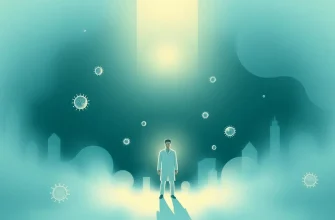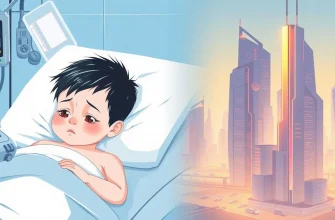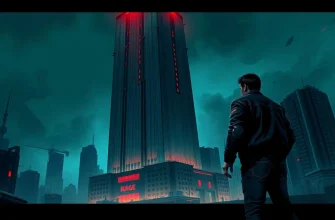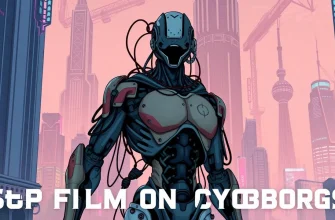In the realm of science fiction, epidemics have long been a fertile ground for exploring human resilience, societal breakdown, and the quest for survival. This curated list of films delves into the heart of pandemics, offering viewers not just a glimpse into potential futures but also a reflection on our current world. From global catastrophes to personal struggles, these films provide a mix of suspense, horror, and sometimes even hope, making them an essential watch for anyone intrigued by the interplay of science, fiction, and human nature.

The Andromeda Strain (1971)
Description: Based on Michael Crichton's novel, this film explores the aftermath of a deadly extraterrestrial microorganism that wipes out an entire town. It's a classic example of early sci-fi epidemic narratives, focusing on scientific investigation and containment.
Fact: The film was one of the first to use computer-generated imagery (CGI) for its title sequence. It also inspired a 2008 miniseries remake.
 Watch Now
Watch Now 
Outbreak (1995)
Description: A military experiment gone wrong releases a deadly virus, leading to a race against time to contain it. This film blends action with the grim reality of biological warfare and epidemic control.
Fact: The film was inspired by the book "The Hot Zone" by Richard Preston. Dustin Hoffman's character was originally written for Harrison Ford.
 Watch Now
Watch Now 
28 Days Later (2002)
Description: A fast-moving, rage-inducing virus turns the UK into a wasteland. This film redefined the zombie genre by introducing the concept of "fast zombies" and exploring themes of isolation and survival.
Fact: The film was shot on digital video to give it a raw, documentary feel. It also influenced many subsequent zombie films and games.
 Watch Now
Watch Now 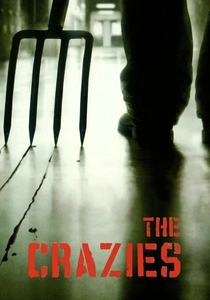
The Crazies (2010)
Description: A remake of George A. Romero's 1973 film, it deals with a small town's descent into madness due to a biological weapon gone awry. It's a chilling look at how quickly order can turn into chaos.
Fact: The film was shot in Iowa, giving it a very American small-town feel. The original film was one of Romero's lesser-known works.
 Watch Now
Watch Now 
Carriers (2009)
Description: Four friends navigate a post-apocalyptic world where a deadly virus has decimated the population. It's a character-driven story focusing on moral dilemmas and survival instincts.
Fact: The film was shot in New Mexico, providing a stark, desolate backdrop. It was one of Chris Pine's early roles before his rise to fame.
 Watch Now
Watch Now 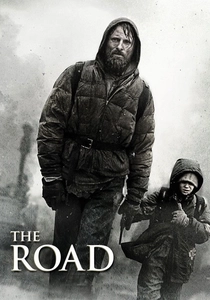
The Road (2009)
Description: While not strictly about an epidemic, the film's backdrop is a world after an unspecified cataclysm, possibly a virus, leading to a bleak, survivalist journey of a father and son.
Fact: The film is based on Cormac McCarthy's Pulitzer Prize-winning novel. Viggo Mortensen lost 30 pounds for the role to portray the physical toll of the journey.
 Watch Now
Watch Now 
The Colony (2013)
Description: In a post-apocalyptic world where survivors live underground to escape a deadly virus, this film explores themes of survival, leadership, and the human spirit's resilience.
Fact: The film was shot in Toronto, using real snow to create the icy, post-apocalyptic setting. Laurence Fishburne's character was originally written for a different actor.
 Watch Now
Watch Now 
Contagion (2011)
Description: This film eerily predicted the global response to pandemics, showcasing the rapid spread of a deadly virus and the ensuing chaos. Its realistic portrayal of scientific and societal reactions makes it a must-watch for understanding the complexities of epidemic management.
Fact: The film was used by the CDC as a training tool for outbreak response. It also features a scene where Gwyneth Paltrow's character dies, which was eerily similar to real-life events during the 2020 global health crisis.
 Watch Now
Watch Now 
The Flu (2013)
Description: A South Korean film about a deadly virus outbreak in a quarantined city, showcasing the struggle for survival and the human cost of such an epidemic.
Fact: The film was a major box office success in South Korea. It was also praised for its realistic portrayal of quarantine procedures and public health responses.
 Watch Now
Watch Now 
Blindness (2008)
Description: An epidemic of sudden blindness spreads through a city, leading to societal collapse. This film delves into human behavior under extreme conditions, focusing on the loss of sight as a metaphor for societal blindness.
Fact: The film was shot in São Paulo, Brazil, to give it a universal, urban setting. It was directed by Fernando Meirelles, known for "City of God."
 Watch Now
Watch Now 

